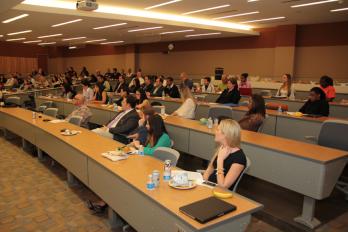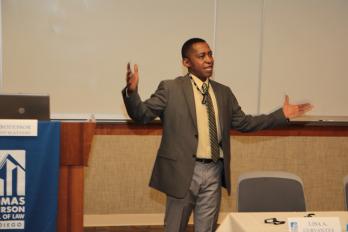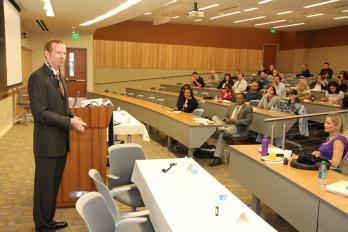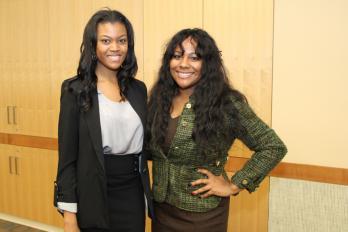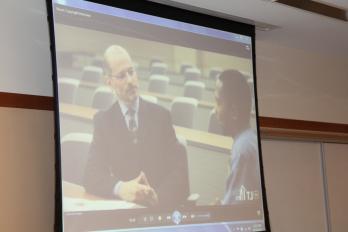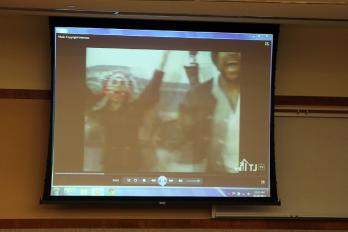Music Copyright Termination Panel Rocks The House
October 25, 2012
Thomas Jefferson School of Law, the Entertainment Law Society, in association with the Center for Law and Intellectual Property presented an important and well-attended seminar on October 20, titled “Music Copyright Terminations: The Ticking Time Bomb Has Arrived.”
“The specter of music copyright terminations is hanging over the music industry,” said TJSL Entertainment Law Professor K.J. Greene, who produced the conference. “At stake are many millions of dollars in copyrights in the signature songs of the Seventies. The question is will artists and performers win back their copyrights, as contemplated in the Copyright Act, or will labels and music publishers fight tooth and nail to prevent terminations. The first wave of music copyright terminations begins in earnest in 2013, and precursor of what may come was glimpsed in Village People composer and singer Victor Willis. That is why we were delighted to kick off the event with a special video appearance by Brian Caplan, the attorney for Willis in the recent litigation over termination rights to songs such as ‘YCMA’ and ‘Macho Man.’”
According to Professor Greene, “The panelists, including three TJSL grads who are achieving prominence in the IP/Entertainment field, Lisa Cervantes ‘97, Valerie Dearth ‘03 and Lacy J Lodes ‘08, all performed superbly. Copyright termination is a complex, indeed byzantine issue, but the panelists really brought the nuances of terminations to life, and as panelist David Branfman, a top San Diego copyright lawyer said, it was a very quick three hours.”
Najmah Brown 3L, who co-directed the event along with Camara Mathis 3L, stressed the importance of the conference for those who would practice music law. “For any practitioner in the Intellectual Property and Music realm of the legal practice, The Music Copyright Termination panel was definitely a must-attend event,” Brown said. “The panel consisted of heavyweight attorneys and music executives, who shared a wealth of information regarding the matter. From the actual filing of a copyright termination to what provisions are necessary in the contracts. Key emphasis was on artists selecting their hit songs and then re-negotiating those deals. It is not in the best interest of the artist to try to acquire publishing for their entire catalog of tracks. The cost of filing a copyright termination case can be very costly and would not be a benefit to the artist for renegotiating publishing for songs that will not generate revenue. The moral of the story is if artists or their heirs have a hit song from the 70’s that is still generating revenue or can potentially be exploited for a profit then they should seek copyright termination. “
“This event once again showcased the value of TJSL student-faculty collaborations,” said Professor Greene. “My directors Najmah Brown and Camara Mathis performed flawlessly in putting this event together, and the moderators, TJSL professors Julie Cromer Young and Jeff Slattery really moved the discussion along. Our goal is to run the premier IP and Entertainment events in San Diego, showing that TJSL is at the cutting edge of IP.”
Professor Greene also had high praise for Sherwin Laranga and Denice Menard in TJSL’s Communications Department, who produced the Brian Caplan video.
“Thanks to the creativity of Sherwin and Denice, attendees were treated to a professional-grade video that creatively incorporated music video clips of the Village People singing hits such as ‘YMCA’ and ‘In the Navy.’” interspersed throughout the interview,” said Professor Greene. “The video combined information and entertainment that kept the audience engrossed.”
